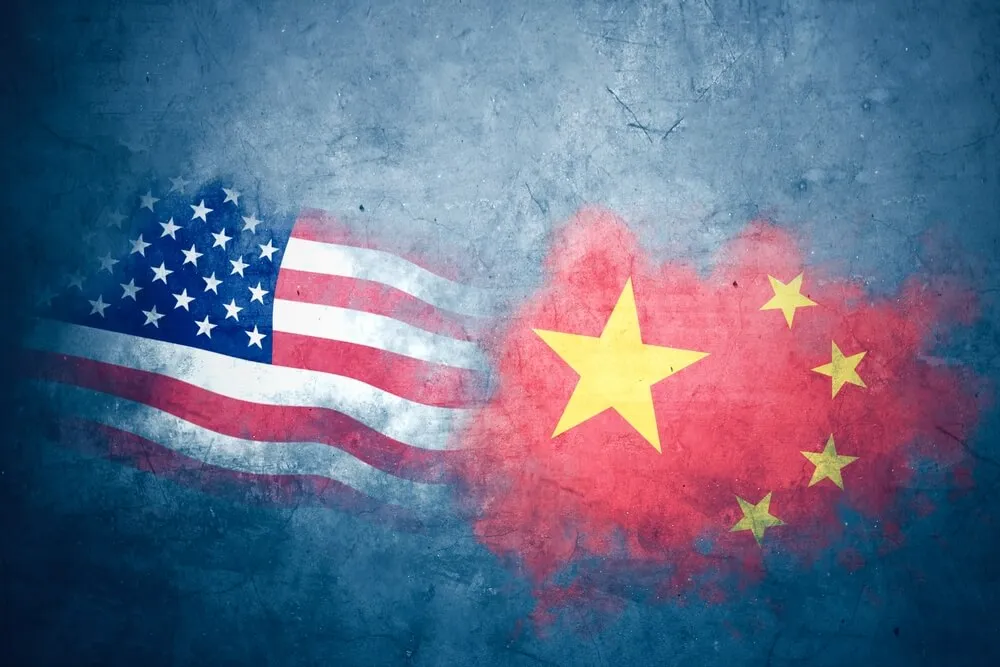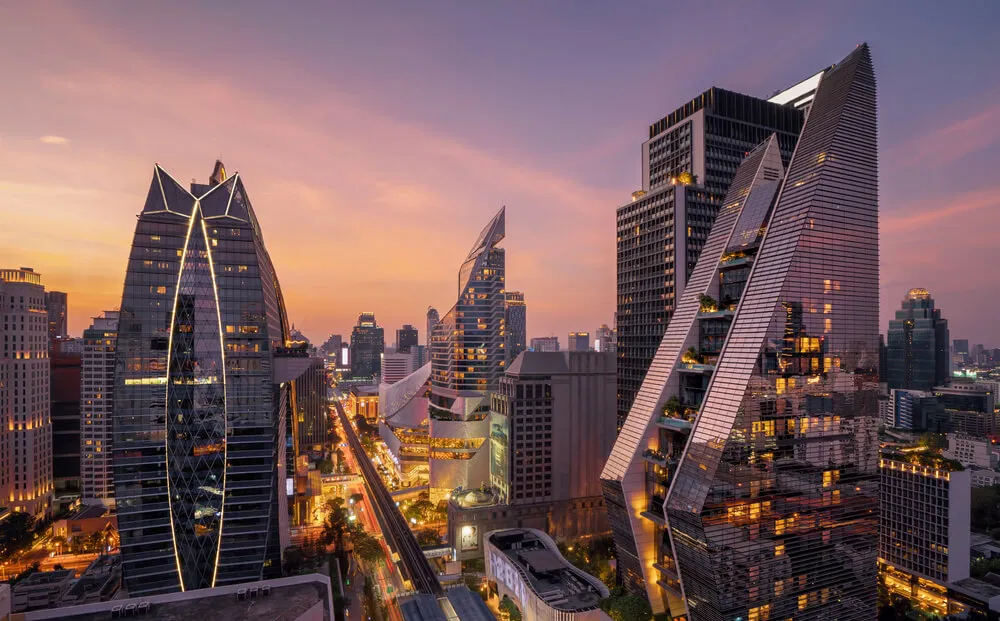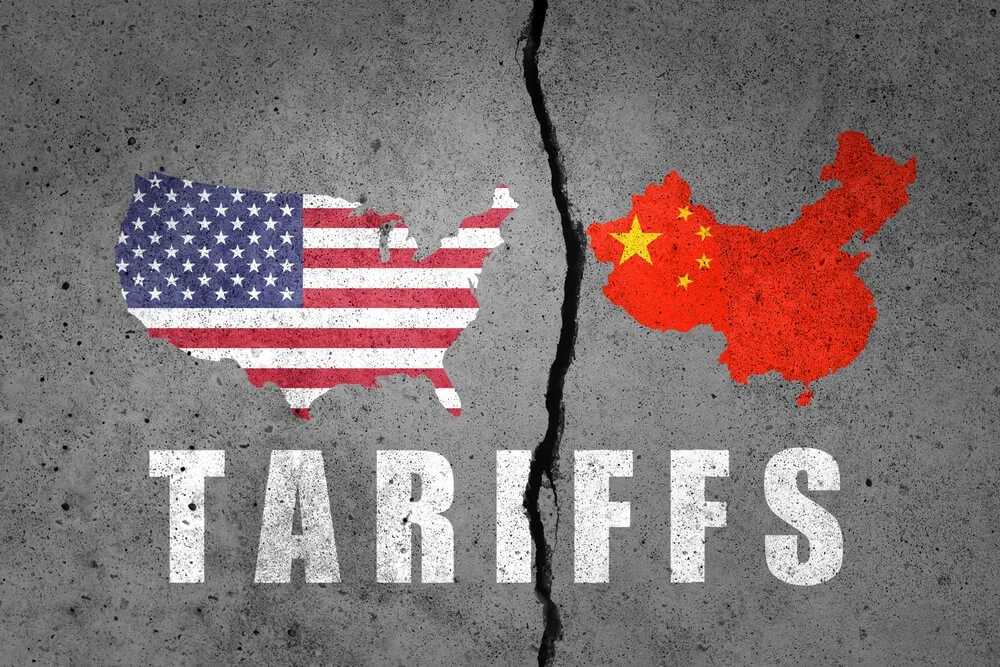As a result, many multinational manufacturers are rapidly re-evaluating their operations in China, seeking to diversify risk and relocate their production facilities. Among the most promising destinations to emerge from this strategic shift is Thailand—a rising star in the global industrial real estate market.
The growing number of USA - China trade war opportunities in Thailand is now shaping a new era for investors, developers, and manufacturers alike. In this article, we explore why Thailand is capturing global attention and how industrial property in the country stands to benefit. The Bangkok property market is robust, so how will this affect the market and industry? Let's find out!
The Ripple Effect of Renewed Tariffs
The original USA-China trade war began in 2018, but recent developments have intensified the urgency for supply chain diversification. The latest U.S. tariff hikes in 2025 come as part of broader efforts to reduce dependency on Chinese manufacturing, especially in high-tech and strategically sensitive industries. These measures have not only increased costs for companies based in China but have also added layers of political and regulatory uncertainty.
Consequently, many firms are accelerating their "China Plus One" strategy—expanding or relocating manufacturing outside China to minimize disruption. For those exploring Southeast Asia, the USA - China trade war opportunities in Thailand are impossible to ignore.

Why Thailand? Strategic Advantages for Manufacturers
Thailand offers a unique blend of strategic location, infrastructure, workforce, and government support that appeals to companies seeking new manufacturing bases.
1. Geographical Advantage
Located at the heart of ASEAN, Thailand provides easy access to markets across Southeast Asia, including Vietnam, Malaysia, Indonesia, and Singapore. Its connectivity via highways, seaports, and international airports ensures smooth logistics and exports.
2. Government Incentives
Thailand’s Board of Investment (BOI) offers a wide range of incentives for foreign investors. These include tax holidays of up to 8 years, exemptions on import duties for machinery and raw materials, and permission for foreign ownership of land in industrial zones.
3. Skilled Workforce
Thailand boasts a large, semi-skilled to highly skilled labor force with strong experience in automotive, electronics, food processing, and light manufacturing industries.
4. Eastern Economic Corridor (EEC)
This government-backed initiative covers the provinces of Chonburi, Rayong, and Chachoengsao, and is designed to become a hub for advanced industries such as smart electronics, EVs, robotics, and biotech. The EEC is also home to several world-class industrial estates.
These strengths are fueling the rise in USA - China trade war opportunities in Thailand, especially in the realm of industrial property.
Industrial Property Boom: Key Areas of Growth
The influx of manufacturers into Thailand is driving up demand for industrial land, warehouses, and ready-built factory space. Developers in areas like Chonburi, Rayong, Pathum Thani, and Samut Prakan are already seeing increased interest from overseas clients.
Here are some of the sectors seeing the fastest growth:
- Electronics & Semiconductors
Amid U.S. restrictions on Chinese tech imports, companies producing chips, sensors, and circuit boards are relocating to Thailand. The country has a proven track record in electronics assembly and a supportive infrastructure.
- Electric Vehicles & Automotive
Thailand is often called the "Detroit of Asia." Now, the government is pivoting toward electric vehicles, offering subsidies and incentives to EV manufacturers and battery producers, many of whom are moving operations from China.
- Textiles & Garments
Labor-intensive industries like textiles are particularly sensitive to tariff costs. Thailand's existing textile ecosystem and FTAs with global markets make it a viable replacement for Chinese production.
- Green Energy & Sustainable Manufacturing
Thailand is also gaining ground in solar panel manufacturing, wind energy components, and lithium-ion battery production. Investors in green industries are increasingly looking at Thailand as a base of operations.
The USA - China trade war opportunities in Thailand are particularly pronounced in these high-growth, future-forward sectors.
Looking to rent a factory in Bangkok? Click here to see your options.
The Role of Industrial Developers
Key players in Thailand’s industrial real estate sector are expanding to meet demand. These companies are building out modern industrial estates complete with ready-built factories, build-to-suit options, logistics hubs, and smart infrastructure.
These industrial parks offer plug-and-play solutions for manufacturers looking to make quick, cost-effective transitions out of China. Many are located within Special Economic Zones and the EEC, further sweetening the deal with regulatory and logistical advantages.
What This Means for Investors
For real estate investors, this trend represents a golden opportunity:
- Rising Demand = Strong ROI: Industrial land and warehouses are seeing sharp increases in value and occupancy rates.
- Long-Term Leases: Manufacturing tenants typically sign long-term leases, offering stable income streams.
- High Potential for Capital Gains: As foreign investment continues, early entrants to the market could see significant property value appreciation.
Whether you’re a developer, fund manager, or private investor, the USA - China trade war opportunities in Thailand offer both immediate and long-term potential.

How Hero Realtor Bangkok Can Help
At Hero Realtor Bangkok, we’re more than just a real estate agency—we’re your strategic partner for industrial investment. Our team offers end-to-end support for investors, from market insights and land acquisition to navigating BOI regulations and negotiating developer deals.
Are you're seeking a large industrial plot in the EEC or a turnkey logistics facility near Bangkok? Our expertise at Hero Realtor Bangkok and ensure you’ll find the right solution at the right price.
We understand the rapidly evolving landscape and can help you seize the USA - China trade war opportunities in Thailand before the market becomes saturated.
Conclusion: A Defining Shift in Global Industry
The USA-China trade war has shifted gears in 2025, pushing manufacturers to rethink their global strategies. With Donald Trump's newly imposed tariffs further complicating the outlook for Chinese production, Thailand is emerging as one of the most attractive alternatives in Asia.
For manufacturers, the country offers security, support, and scalability. For property investors and developers, the industrial boom presents a rare chance to ride a wave of growth that could reshape Thailand’s economy.
If you're looking to tap into the USA - China trade war opportunities in Thailand, now is the time. Reach out to Hero Realtor Bangkok and let us help you find your place in the new industrial revolution.






